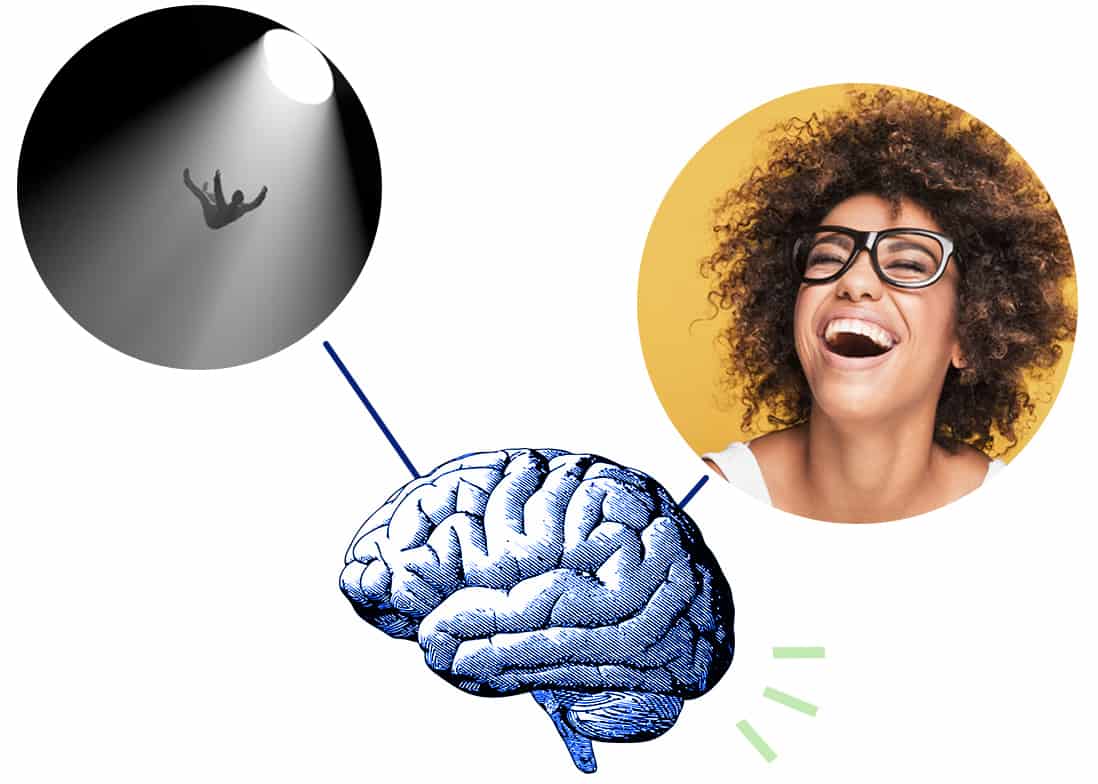Table of Contents
Why people dream is one of the oldest questions in behavioral science. Theories abound about their purpose and nature. Are they messages from the subconscious? The meaningless firing of neurons in the brain? What do dreams mean, anyway?
The process of studying the meaning of dreams is known as dream interpretation. Though assigning meaning to dreams isn’t a scientific process, it is a popular way of attempting to understand the significance of our unconscious thoughts and what our dreams say about us.
FAQ
Q: Does everyone dream? A: According to sleep research, everyone dreams during REM sleep, but many people don't remember their dreams.Note: The content on Sleepopolis is meant to be informative in nature, but it shouldn’t take the place of medical advice and supervision from a trained professional. If you feel you may be suffering from any sleep disorder or medical condition, please see your healthcare provider immediately.
What Are Dreams?
Dreams are a collection of involuntary thoughts, visual images, and emotional responses that occur during sleep. Sounds and physical sensations can also be experienced in dreams. Once thought to occur only during the REM stage of sleep, dreams take place during the three non-REM phases of sleep, as well.

Dreams begin in early childhood and increase in number and length until adulthood. They appear to be triggered when the usual activity of the brain changes or decreases, as it does regularly during sleep.
The average person dreams three to five times each night, though some particularly prolific dreamers may dream up to seven times in a single night. While most dreams last between five and twenty minutes, some last only seconds, and many are never remembered. Approximately six years of our lives are spent dreaming.
The History of Dream Interpretation
Evidence of dream interpretation goes back at least three thousand years to the Sumerian culture in modern-day Iraq. Priests in ancient Egypt believed that dreams were a form of supernatural communication, while the Greeks considered dreams to be omens of deep significance.
Psychiatrists Sigmund Freud and Carl Jung were fascinated by dreams, and had different theories about their meaning. In The Interpretation of Dreams, Freud wrote that dreams represent the fulfillment of repressed wishes, and are inspired by the events of the preceding day. Even today, many people interpret their dreams based on Freudian theory.

Carl Jung believed that dreams were not symbols of repressed thoughts or desires, but direct messages from the deeper psyche. To Jung, dream images are symbols that express thoughts and unacknowledged beliefs buried in the subconscious. Dreams, Jung’s collection of essays, is a classic in the field of dream analysis and remains popular today.
Modern dream interpretation draws on all of these historic traditions, but remains unscientific. Though brain activity can be measured during dreams, dreams and their meaning are subjective and can’t be studied with available methods. Despite the lack of research into the meaning of dreams, dream interpretation remains a popular pursuit across cultures worldwide.
The Interpretation of Dreams
Freud's Interpretation of Dreams was published in 1900 and reprinted seven times duing Freud's lifetime.
Interpretations of Common Dreams
While we may not know exactly what dreams mean, the following are popular interpretations of some of the most common dreams:
- An argument — Dreaming about arguing may mean you’re trying to understand an issue that remains unsettled in your waking life. If you’re undecided about an important issue, the dream may represent an internal discussion with yourself
- Assault — Dreaming that you’re being assaulted may signify feelings of vulnerability or helplessness. Whether the dream means you feel powerful or victimized depends on your actions in the dream and how they make you feel
- Being chased – This is one of the most common themes in dreams. Being chased may mean you feel threatened by a person or situation, or are reluctant to face an issue that needs your attention
- Death – Dreaming about the death of a loved one or friend is not a psychic prediction but a representation of change. For those who are currently bereaved, dreaming about death can be a way to try to understand and come to terms with loss
- Falling – Falling is common in dreams as well as nightmares, and may be associated with letting go, fears of failure following a success, or anxiety about losing control
- Hair – According to Freud, dreams about hair have significant ties to one’s sexuality. He believed that abundant hair symbolized virility or strength. To dream about your hair being cut may mean you’re adjusting your thinking about an issue or letting a burden go
- Killing – Killing in dreams may represent a desire to kill a part of one’s own personality. Killing in a dream can also be a sign of unacknowledged hostility, or the need to make a permanent change
- Money – Dreams about money may symbolize self worth. When money is exchanged in a dream, it might mean you are anticipating life changes, or need to get something in return from someone
- Mountains – Because mountains are considered obstacles, a dream of climbing a mountain can signify feelings of power or achievement
- Nudity – Nudity is a common theme in dreams, and is often a symbol of feeling vulnerable and exposed. These types of dreams can also symbolize a desire for recognition, or the fear of revealing one’s shortcomings to others
- Oak tree — An oak tree may be a symbol of stability, longevity, or wisdom. Dreaming of an oak tree, or any large tree, could reflect the need for something solid in your life, or the feeling that you’ve achieved something important and long-lasting
- Oasis — The search for an oasis might symbolize the need for support or nurturing. You may feel insecure or unsure, and are looking for help or safety. Finding an oasis may represent reaching a significant goal or destination in your waking life
- Package — A package might represent important qualities or feelings that you keep hidden. Receiving a package could signify the acquisition of new skills. Giving or sending a package may suggest trying to transfer responsibility to someone else, especially if you feel regret for past actions

- Packing — To dream that you are packing signifies big changes ahead for you. You may be putting past issues or past relationships behind you. Alternatively, packing could represent letting go of burdens you’ve carried
- Quest — Dreaming that you’re on a quest may signify the obstacles and challenges you face in pursuit of your goals or path in life
- Quicksand — A dream of sinking into quicksand may represent feelings of insecurity, or being pulled into a relationship or situation that makes you feel trapped or overwhelmed
- Rain — Rain can symbolize the washing away of old feelings or letting go of a certain relationship or situation. Rain can also signify tears and sadness, but in dreams is often accompanied by a sense of renewal
- Recurring Dream — Recurring dreams can signify unresolved issues, repeated behavior that holds you back, or emotions you repress in waking life
- School — A dream about school might represent feelings of inadequacy or anxieties about your abilities, particularly if the dream involves being late or unprepared
- Scorpion — A scorpion could represent a negative or threatening person or situation in waking life. Scorpions can also symbolize vengeance and pain, as well as betrayal
- Tarot cards — A dream about tarot cards or tarot reading can signify your subconscious thoughts and feelings, or the desire to make sense of your life and emotions
- Underwater — A dream of being underwater might signify feeling overwhelmed by a person, situation, or emotion. Breathing underwater in dreams may represent the need to be protected and nurtured
- Walking — A dream of walking could indicate steady progress toward a goal or desire. Difficulty walking in a dream may show reluctance to proceed in a difficult situation. You may also be trying to distance yourself from certain people or life experiences
- X-Ray — Dreaming of being X-rayed may represent feeling vulnerable or exposed, either physically or emotionally
- Yelling — Dreaming that you or another person is yelling may be indicative of repressed strong emotions or fears. If you are yelling and no one hears, it could suggest that you feel overlooked
- Zombies — If you dream of being attacked by zombies, it may indicate that you feel overwhelmed or helpless in your waking life. A dream that someone you know is a zombie could reveal that you feel threatened by or detached from them
FAQ
Q: Why do so many people dream about their teeth falling out? A: Research shows that dreams about teeth tend to be associated with tooth grinding, tooth aches, and other common dental sensations during sleep, causing dreams related to tooth loss.Last Word From Sleepopolis
Dream interpretation is an unscientific but popular way of trying to discover the hidden meaning and symbolism behind dreams. For thousands of years people have tried to access their deeper selves through dreams, which many believed were messages from the subconscious or the supernatural.
Though psychiatrists such as Freud and Jung wrote influential books about the analysis of dreams, there is no definitive answer to the meaning of dreams. What we think our dreams mean – and our need to understand them – may reveal more about us than our dreams themselves.
Subscribe Today!
Get the latest deals, discounts, reviews, and giveaways!

